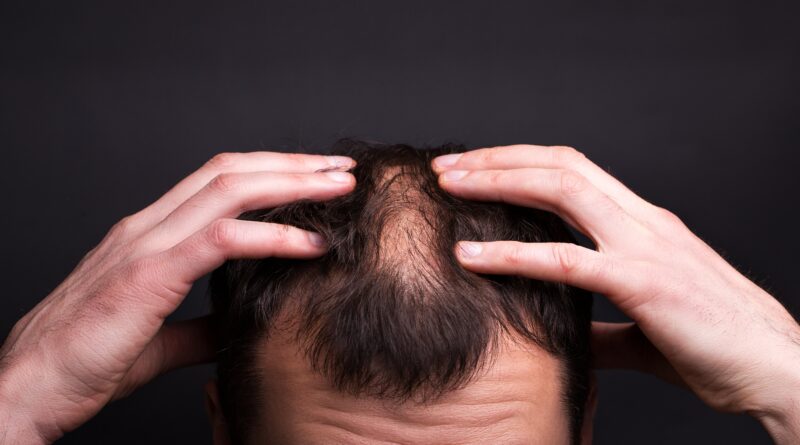Can Lack of Sleep Cause Hair Loss?
The relationship between sleep and hair health is significant, though often overlooked. While most people associate a good night’s rest with overall well-being, few realize that sleep plays a crucial role in maintaining healthy hair. Lack of sleep can negatively affect your body in numerous ways, including potentially leading to hair loss. In this blog, we’ll explore how inadequate sleep can contribute to hair thinning and what you can do to prevent it.
The Importance of Sleep for Hair Health
Sleep is a restorative process, crucial for maintaining the body’s physiological functions, including hair growth. During sleep, the body undergoes cell repair, which is essential for healthy hair. The hair follicles rely on the body’s ability to heal and regenerate during the night. Disrupted or insufficient sleep can hinder this process, making the hair follicles weaker and more susceptible to damage.
Moreover, sleep deprivation can disrupt the hormone levels in your body, particularly those related to stress and hair health. When you don’t get enough rest, the levels of cortisol—known as the stress hormone—increase. Elevated cortisol levels can lead to a condition called telogen effluvium, a temporary form of hair loss where hair prematurely enters the resting phase of the hair cycle.
Stress and Hair Loss: The Connection
One of the major effects of sleep deprivation is increased stress, which directly correlates with hair loss. When you’re sleep-deprived, your body remains in a heightened state of stress. This prolonged stress condition can disrupt your hair growth cycle. Normally, hair grows in cycles: the anagen (growth) phase, the catagen (transition) phase, and the telogen (resting) phase. In cases of sleep deprivation-induced stress, more hair follicles can enter the telogen phase prematurely, causing excessive shedding.
Furthermore, ongoing sleep deprivation may even trigger chronic stress, a factor often linked to more permanent hair loss conditions like alopecia areata or male and female pattern baldness. Chronic stress can also weaken the immune system, which is essential for maintaining the strength of hair follicles. As a result, the hair becomes more brittle and falls out easily.
Can Sleep Deprivation-Induced Hair Loss Be Reversed?
The good news is that hair loss due to sleep deprivation is often reversible. Once you adopt healthier sleep habits and manage stress, you may notice a reduction in hair shedding. Consistently getting 7-9 hours of sleep per night can lower cortisol levels, allowing your body to restore its natural balance. Improved sleep will enable your hair follicles to remain in the anagen (growth) phase longer, contributing to thicker and healthier hair.
However, if your hair loss persists despite better sleep patterns, it might be time to seek professional help. A variety of hair loss treatments in Islamabad can help address more stubborn cases of hair thinning. These treatments range from topical solutions like minoxidil to advanced therapies such as PRP (Platelet-Rich Plasma) treatments or even hair transplants for those with severe hair loss.
Tips to Improve Sleep and Hair Health
Improving your sleep hygiene can greatly reduce the likelihood of hair loss due to sleep deprivation. Here are some tips to help you maintain good sleep habits:
- Establish a Sleep Schedule: Try to go to bed and wake up at the same time every day. A consistent schedule helps regulate your body’s internal clock, promoting better sleep quality.
- Limit Screen Time Before Bed: The blue light emitted from phones, computers, and TVs can interfere with melatonin production, a hormone that regulates sleep. Reducing screen time before bedtime can lead to deeper, more restorative sleep.
- Create a Relaxing Bedtime Routine: Engage in calming activities before bed, such as reading or meditating. This can help signal to your body that it’s time to wind down and prepare for sleep.
- Watch Your Diet: Avoid caffeine and heavy meals close to bedtime. Both can interfere with your ability to fall asleep or maintain deep sleep throughout the night.
Professional Hair Loss Treatment Options
If lifestyle changes like improving sleep don’t stop the hair loss, it might be beneficial to consult with a hair restoration specialist. In Islamabad, various treatments are available that are tailored to meet individual hair loss needs. Some options include:
- Minoxidil and Finasteride: These are FDA-approved medications that can help slow hair loss and promote hair regrowth.
- PRP Therapy: Platelet-Rich Plasma treatment uses your own blood to promote hair follicle health and encourage hair regrowth.
- Laser Therapy: Low-level laser therapy is a non-invasive option that can stimulate hair follicles and encourage hair growth.
Each treatment has its benefits and can be discussed with a professional to find the best solution for your hair loss.
Conclusion
In conclusion, lack of sleep can be a contributing factor to hair loss, primarily by disrupting the body’s ability to regenerate cells and manage stress. If you’re noticing excessive shedding and believe sleep deprivation is to blame, adopting better sleep habits can make a significant difference. However, if hair loss persists, seeking professional treatment may be necessary.
For those in need of effective hair restoration solutions, Royal Cosmetic Surgery offers a range of advanced treatments to help you regain your confidence and restore your hair’s health. Consulting a professional can ensure that you receive the right treatment for your specific hair loss condition, setting you on the path to thicker, healthier hair

